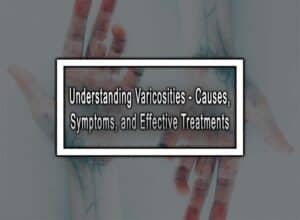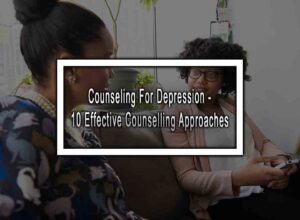Avoidant Personality Disorder (AVPD) is a type of personality disorder in which the person avoids social interactions or situations due to the fear of rejection, criticism, or humiliation. Individuals suffering from AVPD have low self-esteem and often doubt their abilities and self-worth. The disorder affects both men and women and can cause significant problems in their personal and professional life.
The symptoms of Avoidant Personality Disorder may start during childhood or early adolescence and continue throughout adulthood. Most individuals with this disorder are shy and introverted and have difficulty in forming close relationships with others. They tend to avoid group activities, public speaking, or situations where they have to be the center of attention.
Table of Contents
ToggleCauses of Avoidant Personality Disorder
The causes of AVPD are not fully understood, but certain factors can contribute to its development. These are:
- Genetics: Individuals with a family history of anxiety disorders are more likely to develop Avoidant Personality Disorder.
- Environment: Childhood experiences such as emotional neglect, abuse or rejection can contribute to the development of the disorder.
- Brain Chemistry: Changes in the brain’s neurotransmitters can affect an individual’s mood and behavior and can contribute to the development of Avoidant Personality Disorder.
Symptoms of Avoidant Personality Disorder
The symptoms of Avoidant Personality Disorder are characterized by extreme shyness, sensitivity to criticism, and social isolation. Some of the common symptoms include:
- Avoidance of social activities and situations: People with Avoidant Personality Disorder avoid social situations, including work functions, parties, and even family gatherings due to fear of rejection, criticism, or embarrassment.
- Isolation: Individuals with this disorder prefer to stay alone and avoid socializing with others. They tend to have a limited social circle and find it challenging to form close relationships.
- Low Self-esteem: Individual with Avoidant Personality Disorder typically has low self-esteem and doubts their abilities and self-worth. They are overly critical of themselves and feel inferior to others.
- Fear of criticism and rejection: The individual with this disorder is extremely sensitive to criticism or rejection and tends to avoid situations where they may be criticized or rejected.
- Anxiety and Panic Attacks: People with Avoidant Personality Disorder may experience symptoms of anxiety or panic attacks when they are in social situations.
Treatment for Avoidant Personality Disorder
Avoidant Personality Disorder is a treatable condition, and various therapies can help an individual cope with the symptoms. The most effective form of treatment for Avoidant Personality Disorder is Cognitive Behavioral Therapy (CBT). CBT is a type of talk therapy that helps individuals learn new ways of thinking and behaving by challenging their negative thought patterns. CBT can help individuals with Avoidant Personality Disorder recognize their negative thoughts and replace them with more positive and realistic ones.
In addition to CBT, medication can be used to treat Avoidant Personality Disorder. Antidepressants and anti-anxiety medications can help relieve symptoms of anxiety and depression, which are often associated with the disorder.
Conclusion
Avoidant Personality Disorder can significantly impact an individual’s personal and professional life. While the disorder can be difficult to manage, recognizing the symptoms and seeking treatment is key to managing the condition and improving quality of life. If you or someone you know is experiencing symptoms of Avoidant Personality Disorder, it is essential to seek professional help. With the right treatment, individuals with Avoidant Personality Disorder can learn to manage their symptoms and live a fulfilling life.
Avoidant Personality Disorder FAQ
Here are the most common questions about avoidant personality disorder.
How is AVPD diagnosed?
To be diagnosed with AVPD, a person must meet the criteria outlined in the DSM-5. A mental health professional will evaluate a person’s symptoms, behaviors, and history to make a diagnosis.
How is AVPD treated?
There is no known cure for AVPD, but it can be treated with therapy, medication, and lifestyle changes. Cognitive-behavioral therapy (CBT), group therapy, and interpersonal therapy can be effective in helping people with AVPD learn coping skills, improve communication and relationships, and manage their anxiety.
Can people with AVPD lead normal lives?
With treatment and support, people with AVPD can learn to manage their symptoms and lead fulfilling lives. However, it may take time and effort to overcome their fear of rejection and develop strong social and emotional connections.
Are there any complications associated with AVPD?
People with AVPD may experience difficulties in their personal and professional relationships due to their avoidance of social situations and fear of rejection. This can lead to social isolation, loneliness, and a lack of fulfillment in life. In severe cases, depression, anxiety, and suicidal thoughts may also develop.
Is AVPD a common disorder?
AVPD is considered a relatively rare disorder, with a prevalence rate of less than 1% in the general population. However, it is more common among people with other mental health conditions, such as anxiety disorders and depression.
Can AVPD be prevented?
There is no known way to prevent AVPD, but early intervention and treatment for social anxiety and other related conditions may help reduce the risk of developing AVPD.
More like this: What Is Schizoaffective Disorder












